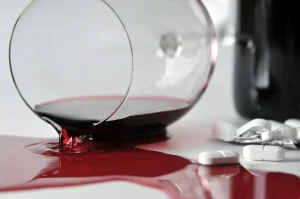
The symptoms of histamine intolerance are similar to an allergic reaction. For example, potential symptoms include red and itchy skin, nasal congestion, shortness of breath, abdominal pain, and diarrhea. Unfortunately, nothing can prevent reactions to alcohol or ingredients in alcoholic beverages. To avoid a reaction, avoid alcohol or the particular substance that causes your reaction.

Lifestyle changes
- However, standardized skin testing using different types of alcohol is not currently available.
- If you’re concerned that you have an allergy, your GP will be able to help.
- In addition, some people find that the alcohol in these drinks irritates their nose, leading to sneezing.
- For example, barley is typically found in beer but not wine.
- Beer ingredients that commonly cause allergies or sensitivities include barley, gluten, histamines, sulfites, and yeast.
- Those with a genuine alcohol allergy should completely avoid alcohol.
These compounds are often added to beer and wine to limit the growth of yeast and act as a preservative. Common sulfites include potassium bisulfite or potassium metabisulfite. Sulfur dioxide is another closely related chemical that can trigger reactions in some people. You should never ignore the symptoms of an allergic reaction. If left untreated, an allergic reaction can quickly become worse. Alcohol intolerance is an immediate and unpleasant reaction to consuming alcohol.
Medical tools and resources
If you might have a beer allergy, a sneezing after drinking alcohol provider would use common ingredients in beer (e.g., wheat and barley) for the test. If you are allergic to these ingredients, your skin will itch or you’ll get a rash during the test. While rare, yeast allergy can cause an allergic reaction in some people.
- Anaphylaxis is a life threatening condition that involves a series of symptoms, such as a rash, low pulse, and shock.
- Rarely, severe pain after drinking alcohol is a sign of a more serious disorder, such as Hodgkin’s lymphoma.
- People with histamine intolerance have decreased or inhibited enzymes that break down histamine from food.
- The reason for these effects is usually due to high blood acetaldehyde levels.
- A steroid nasal spray such as beclometasone usually works well to clear all the nasal symptoms (itch, sneezing, watering and congestion).
Tests & investigations

It’s available in preloaded syringes, known as epinephrine auto-injectors (e.g., EpiPen). If your doctor prescribes an epinephrine auto-injector, you should carry it with you at all times. Then go to your nearest emergency department for follow-up care. If you’re allergic to another ingredient contained in certain alcoholic products, switching to a different drink might be an option.

Ready to treat your allergies with expert care?
In some people it can take up to three weeks or longer to be fully effective. A steroid nasal spray tends to be the most effective treatment when symptoms are more severe. It can also be used in addition to antihistamines if symptoms are not fully controlled by either alone. Health care providers often first make sure a person’s symptoms aren’t caused by allergies. So you may need skin or blood tests to find out if you have allergic rhinitis. If you’re concerned that you have an allergy, your GP will be able to help.

When to see a doctor
If drinking from a glass makes you sneeze, try drinking through a straw instead. This will help reduce your nose’s contact with the drink and make it less likely to trigger a sneeze. If you find that straight spirits make you sneeze, try diluting them with water or soda before you drink them. This will reduce the alcohol in the drink and make it less likely to trigger a sneeze. One is that alcohol dilates blood vessels in the nose, which can cause irritation and lead to sneezing. Another possibility is that alcohol irritates the mucous membranes in the nose, causing them to swell and lead to sneezing.
Your Guide to Alcohol Intolerance
If you’re a seasonal allergy sufferer, you know all about histamine, a chemical compound that can trigger inflammation and allergic reactions. This questionnaire will summarize your specific allergy symptoms to share with your healthcare provider and learn more about your testing options. Problems in the immune system cause an alcohol allergy to develop, while genetic problems in the digestive system tend to cause alcohol intolerance. These problems make it difficult for the body to break down alcohol properly.
With our telemedicine services, you can get the care you need, when you need it, without the hassle of visiting a clinic. Access videos and webinars delivered by key experts in the field of allergy. Get detailed information on whole allergens and allergen components. People should note, however, that its authors do not propose that this means that alcohol causes allergies.